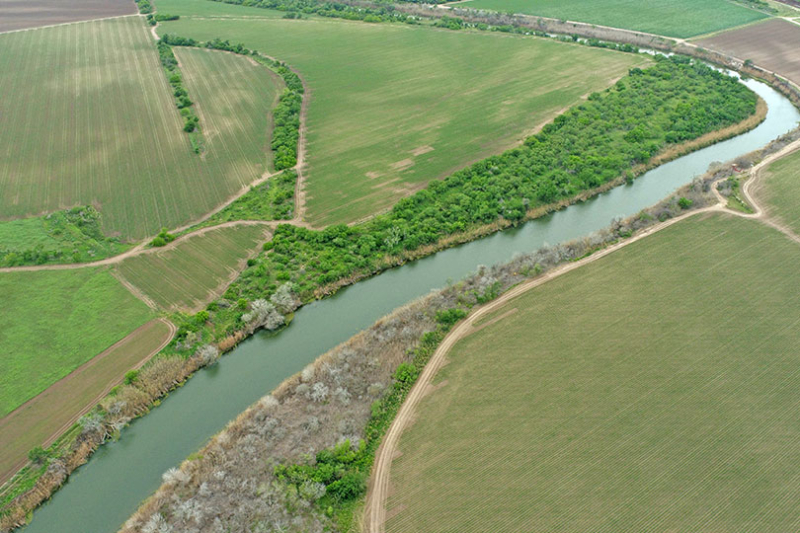By Julie Tomascik
Editor
The Mexican government agreed to immediately transfer Rio Grande water from international reservoirs to the U.S., following years of delayed water deliveries under the 1944 Water Treaty.
Mexico also agreed to increase the U.S. share of the flow in six of Mexico’s Rio Grande tributaries through the end of the current five-year water cycle, according to the U.S. Department of Agriculture (USDA).
“Texas Farm Bureau is pleased the United States and Mexico have come to an agreement to ensure Mexico’s compliance with the 1944 Water Treaty,” Texas Farm Bureau President Russell Boening said. “Texas farmers and ranchers in the Rio Grande Valley are grateful Mexico is finally being held accountable for its non-compliance.”
For South Texas agriculture, the short-term water relief is a crucial first step.
“The immediate deliveries of water and the deliveries of water in the next six months will be critical for farmers and ranchers who have long suffered because of Mexico’s non-compliance,” Boening said.
The Trump administration’s action follows strong pressure from Texas Sens. Ted Cruz and John Cornyn and U.S. Reps. Monica De La Cruz, Henry Cuellar, Vicente Gonzalez and Tony Gonzales.
Their unified push, along with efforts from agricultural groups like Texas Farm Bureau, sent a clear message that ignoring treaty obligations is no longer acceptable.
The two countries also committed to develop a long-term plan to “reliably meet treaty requirements while addressing outstanding water debts—including through additional monthly transfers and regular consultations on water deliveries that take into consideration the needs of Texas users.”
“Mexico finally meeting the water needs of Texas farmers and ranchers under the 1944 Water Treaty is a major win for American agriculture,” U.S. Secretary of Agriculture Brooke Rollins said. “After weeks of negotiations with Mexican cabinet officials alongside the Deputy Secretary of State Christopher Landau, we secured an agreement to give Texas producers the water they need to thrive. While this is a significant step forward, we welcome Mexico’s continued cooperation to support the future of American agriculture.”
Under the treaty, Mexico is required to send 1.75 million acre-feet of water from the Rio Grande to the U.S. over a five-year period. So far in the current cycle, which ends in October, Mexico has delivered less than 600,000 acre-feet. In turn, the U.S. delivers 1.5 million acre-feet of water annually to Mexico from the Colorado River.
The prolonged lack of water, and the resulting inability of sugarcane growers to irrigate their fields, led to the closure of the state’s only sugar mill. Other crops, like citrus and cotton, remain at risk.
“The recovery of Rio Grande Valley agriculture will take time after years of hardship. Mexico must make good on its new promise to deliver water,” Boening said.
Mexico’s government issued a statement saying it would implement a series of measures aimed at mitigating potential shortfalls in water deliveries.
In addition to the treaty agreement, USDA announced a $280 million grant to provide critical economic relief to eligible Rio Grande Valley farmers suffering from Mexico’s ongoing failure to meet its water delivery obligations.
“Farmers and ranchers in the Rio Grande Valley have worked for generations to feed communities across Texas, the U.S. and beyond,” Rollins said. “A lack of water has already ended sugarcane production in the Valley and is putting the future of citrus, cotton, and other crops at risk. Through this grant, USDA is expediting much-needed economic relief while we continue working with federal, state and local leadership to push for long-term solutions that protect Texas producers.”
The grant is part of the broader effort to provide immediate support to affected farmers while work continues to ensure reliable water deliveries under the treaty.


Leave A Comment